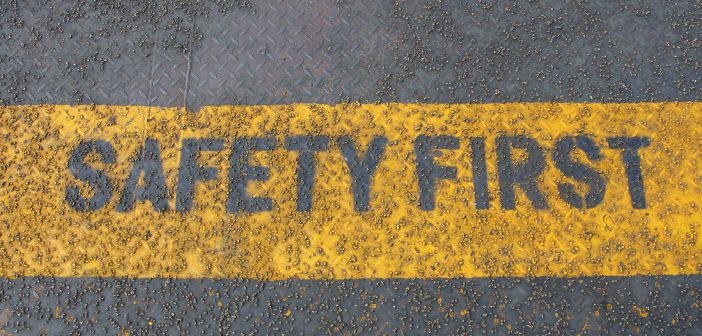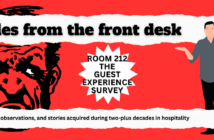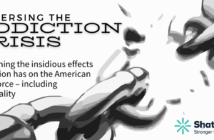by Sal Caccavale, Principal, Global Hospitality Security Solutions, LLC
Hotel leadership often deliberates what to do with worker safety programs. Who should spearhead this non-revenue generating program? Perhaps it’s overlooked by a department that doesn’t have the bandwidth or knowledge, or maybe leadership is too busy to ensure employees are educated on how to protect themselves while at work. Let’s make this clear: You are not being tasked with spending an inordinate amount of time on worker safety or making safety more important than RevPar or ADR or outlet numbers. You must, however, make worker safety equally as important as putting heads in beds, generating covers in restaurants, and filling empty meeting space.
Acknowledging that worker safety is plainly not a revenue stream for any hotel, it can, however, provide potential cost savings, such as:
- Minimal or no fines for being compliant after an OSHA inspection.
- Effectively orchestrated return-to-work programs that keep injured workers motivated and connected to the hotel’s family.
- No additional wages (overtime) for the worker replacing the injured employee.
- Potentially lower insurance premiums for reduced workers’ compensation claims.
Let’s highlight three of OSHA’s many regulatory programs:
Heat Illness Prevention Program (HIPP)
Now is the time to develop or update your HIPP program (may be known by other closely related names outside of California). Documented educational sessions for those impacted employees should be under way today. Reacquaint employees with the plan by holding follow-up sessions in July or August.
Best practices:
- Provide workers with water, rest, and shade.
- Allow new or returning workers to gradually increase workloads and take more frequent breaks as they acclimatize or build a tolerance for working in the heat.
- Plan for emergencies and train workers on prevention.
- Monitor workers for signs of illness.
- Which employees are more vulnerable?
- Valet personnel
- Door personnel
- Shuttle drivers
- Bell personnel
- Maintenance
- Outdoor cleaners
- Landscapers
- Golf club employees
- Greenskeepers
- Beverage cart attendants
- Starters
- Rangers
- Lifeguards
- Security officers
- Outdoor concessions
- Laundry (Employees don’t have to work outdoors to be impacted by high heat.)
Musculoskeletal Injury Prevention Program (MIPP)
California lodging establishments are required to have a written MIPP that addresses hazards specific to housekeepers. (If this is not a state-mandated program in your area, consider incorporating MIPP in your safety program.) Employers and their union representatives must evaluate the worksite. Your written MIPP should also be referenced in the hotel’s written Injury & Illness Prevention Program (IIPP) and maintained as a separate document.
Evaluations will identify unsafe conditions and work practices in each housekeeping task, process, and operation of work with respect to potential causes of musculoskeletal injuries. Evaluations shall be reviewed, updated, and addressed when these are present:
- New processes, practices, procedures, equipment, or renovation of guest rooms are introduced, which may change or increase housekeeping hazards;
- Management is made aware of a new or previously unrecognized housekeeping hazard based on information such as, but not limited to, findings and recommendations of injury investigations;
- Slip-trip-and-fall injuries;
- Prolonged or awkward static postures;
- Extreme reaches and repetitive reaches above shoulder height;
- Lifting or forceful whole-body or hand exertions;
- Torso bending, twisting, kneeling, and squatting;
- Pushing and pulling;
- Falling and striking objects;
- Pressure points where a part of the body presses against an object or surface;
- Excessive work rate; and
- Inadequate recovery time between housekeeping tasks.
Safety Committee
The primary purpose of your hotel’s safety committee is to prevent injuries and accidents. A safety committee, as the genesis of your safety efforts, can contribute to reducing the risk of OSHA citations or other penalties, create a safe work environment, make employees more safety conscious, identify and address safety issues, and guide leadership on displaying concern for their employees’ well-being.
Minimally, safety committee discussions should include:
a) Accidents, injuries, near misses:
- Incidents that have occurred since the last meeting
- Investigation follow-up as a result of an incident
- Trends
- Updates to the hotel’s Accident Prevention Plan
b) Results of safety inspections:
- Discuss the results of the property’s monthly safety inspection.
- Eliminate or control identified hazards.
- Encourage employees to identify unsafe conditions or tasks and find ways to eliminate or control the hazard.
c) Training:
- Discuss new safe work procedures and existing policies and procedures that should be reevaluated.
- Safety Topic of the Month: a presentation and discussion on a selected topic.
Consider this takeaway that may impact your hotel. Does your work atmosphere:
- Provide an unsafe environment for workers?
- Have too many on-the-job injuries?
- Lack the required OSHA programs and training?
Now, examine your employee opinion surveys.
If you see a failing correlation in these areas, it’s not by accident. You shouldn’t be surprised to see that your guest feedback may not be that favorable either.
Embrace worker safety. It’s not as daunting as it seems.
Sal Caccavale founded Global Hospitality Security Solutions, LLC, and provides safety and security solutions to hotels and management firms, law offices, insurance companies and brokers. Having nearly 35 years with Hilton and oversight for their branded hotels in the Americas, Sal offers his knowledge and experience as an independent solutions expert. Sal also has served as chair and vice-chair of the American Hotel & Lodging Association’s Safety & Security Committee. Contact Sal Caccavale at (480) 272-4922 or [email protected].
THE CONTENT OF THIS ARTICLE IS NOT ALL INCLUSIVE OF OTHER OSHA-MANDATED PROGRAMS. THE DISCUSSED PROGRAMS ARE CRUCIAL POINTS ONLY AND NOT INTENDED TO PROVIDE FULL COMPLIANCE FOR ANY OSHA PROGRAMS.




